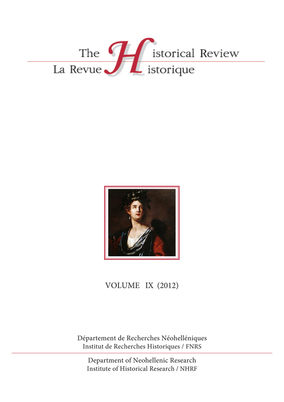"A respectable body of nation" : Religious freedom and high-risk trade: The Greek Merchant in Trieste, 1770-1830
Part of : The Historical Review ; Vol.7, No.1, 2010, pages 199-211
Issue:
Pages:
199-211
Author:
Abstract:
After focusing on the concept of the Greek merchant in the light of Habsburg mercantilist policies in the second half of the eighteenth century, the paper tries to evaluate the importance, in three respects, of the religious freedom that was granted to the Greek merchants who settled in the port-city of Trieste. First of all, the “confessional nation” was the institutional configuration by which Austrian authorities contrived to stabilize and control immigrant colonies. Secondly, being attached to a local church and to a wider religious community was, for the immigrant Greek merchants, a matter of both identity and adaptation, as can be seen through the analysis of naturalization acts and testamentary dispositions. The allocation of testamentary bequests affords a glimpse of the map of the nation in the mind of the Greek merchant. Thirdly, and perhaps most interestingly, the network of migrant merchant/religious colonies made business run, compensating for the normal underdevelopment of credit and communications and the recurrent crises (mainly wars, epidemics and bans on certain goods) that made trade both risky and alluring.
Subject:
Subject (LC):
Notes:
856:https://ejournals.epublishing.ekt.gr/index.php/historicalReview/article/view/4043, DOI: http://dx.doi.org/10.12681/hr.261
Electronic Resources:




